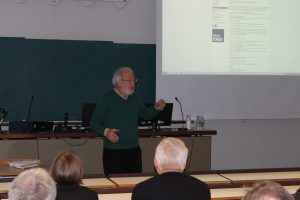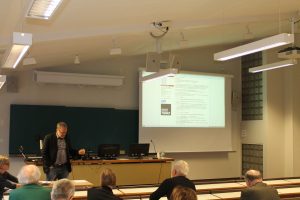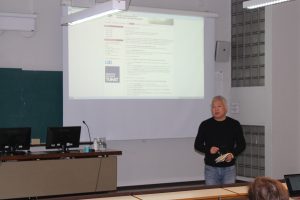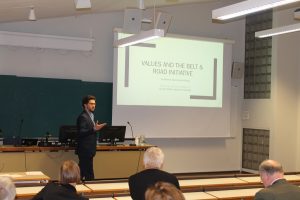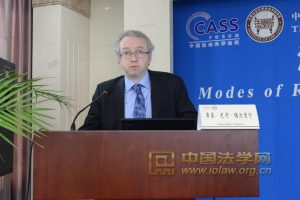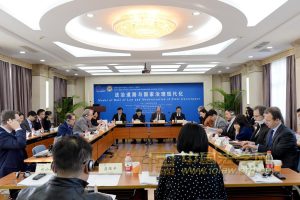The end of 2017 saw a flurry of visits of scholars and staff to China from the University of Helsinki, one of the 10 member institutions of the Finnish China Law Center.
The visits capped off a year marked by ever-deepening cooperation between the University of Helsinki and Chinese scholars and institutions.
In October 2017, Rector of the University of Helsinki, Jukka Kola, led a large delegation of scholars and staff to China.
The purpose of the Rector’s visit was to underscore the significance the University of Helsinki attaches to its friends and partners in China.
During his visit, Rector Kola further developed the important relationship between the University of Helsinki and Peking University, a key partner institution in China of the Finnish China Law Center.
Rector Kola also spoke at an event organized by the Beijing Alumni Club hosted by Finland’s Ambassador to China, Jarno Syrjälä.
The event organizer and Head of the China Alumni Board – Chen Yifeng, Assistant Professor of Law at Peking University – is also Docent of the University of Helsinki and a legal scholar of international renown who played a central role in establishing, and growing, the Finnish China Law Center.
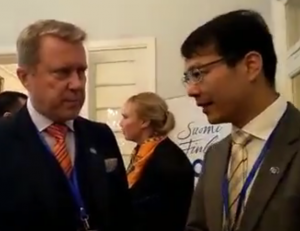
More about Professor Chen’s engagement and research in the University of Helsinki and the Finnish China Law Center can be found in the recently published Report on the First Four Years of the Center.
Sanna Villikka, acting Head of Administration of the Faculty of Medicine, was also part of the Rector Kola’s delegation.
Ms Villikka visited China in her former capacity as Senior Advisor in Research Funding Services at the University of Helsinki’s City Centre Campus. The purpose of her trip was to develop staff exchange between the University of Helsinki and Peking University, to further enhance the University of Helsinki’s relationship with the Chinese Academy of Social Sciences, and to emphasize the high esteem with which the University of Helsinki views its relationship with the Faculty of Law of Peking University.
Another important visit to China was by then Dean of the Faculty of Law, Professor Kimmo Nuotio.
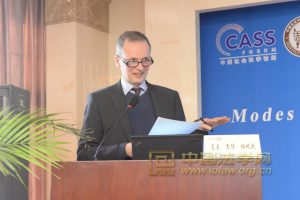
Professor Nuotio joined the Annual Meeting of the Silk Road Law Schools Alliance hosted by Wuhan University.
The Faculty of Law of the University of Helsinki is one of the founding members of the Alliance, which is composed of leading law schools from China and abroad.
The Annual Meeting has become a platform for law schools to meet and discuss academic research, collaboration and legal education.
Doctoral Candidate Kangle Zhang, contact person of the Alliance from the University of Helsinki, also joined the meeting.
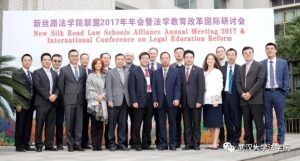
Professor Nuotio was invited to give public lectures at universities across the country, including Peking University, the University of the Chinese Academy of Social Sciences, Wuhan University, Shandong University, and Wuhan University of Technology.
Professor Nuotio also gave a presentation at the Chinese Academy of Social Science’s annual international Rule of Law conference in Beijing.
Held on 17–18 November, the theme of the 2017 conference was ‘Modes of Rule of Law and Modernization of State Governance’.
Professor of Criminal Law at the University of Helsinki, Sakari Melander, was similarly invited to present at the CASS Rule of Law conference, which doctoral candidate Zhang Kangle also attended.

Professor Jukka Viljanen, of Finnish China Law Center member institution the University of Tampere, was also invited to give a presentation at the conference.
Yet another senior scholar from the Faculty of Law at the University of Helsinki to visit China in late 2017 was Senior Lecturer and Adjunct Professor Dr Jarna Petman, who lectured on human rights at Peking University in October 2017.
In addition to her many academic and professional responsibilities, including serving as a Commissioner of the International Commission of Jurists, Professor Petman also visits and lectures at the prestigious Peking University Law School on a regular basis.
These visits have been supported by CIMO’s funding for the collaboration between Erik Castrén Institute of International Law and Human Rights and Peking University’s Institute of International Law.
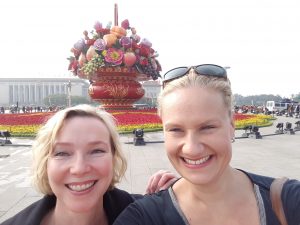
The CIMO project, the result of an application made by Kangle Zhang, was jointly managed by several staff of the Faculty of Law of the University of Helsinki prior to its conclusion at the end of 2017.
During its two years of operation, the project facilitated a range of successful activities that deepened collaboration between the Faculty of Law of the University of Helsinki and Peking University Law School.
The end of 2017 also saw a flurry of visits from China to Finland.
These inbound visits included two delegations in November alone.
The first of these, a large delegation of judges from the Chinese province of Yunnan, resulted in a productive seminar on comparative juvenile justice in Finland and China.
The second visit, by the leadership of Beihang University Law School, lead to the signing of a new MOU on legal research and education cooperation.
This new relationship has already borne fruit, with the announcement by Beihang University Law School of the establishment of its Nordic Law Center, the first of its kind in China.
2018 is shaping up to be even busier for the University of Helsinki and the Finnish China Law Center.
In addition to guest lectures, visiting speakers and other smaller-scale activities, the Center is hosting or co-organizing a number of international events.
These include a China Law Workshop (Helsinki, April – tbc), the 9th Bilateral Comparative Law Seminar (Beijng, August – tbc) with the Chinese Academy of Social Sciences, and the 6th China-Europe Legal Forum with the China Law Society (Helsinki, November – tbc).
Follow the Finnish China Law Center on Twitter (@ChinaLawCenter) and Facebook (@ChinaLawCenter) to keep up-to-date with the latest news, events, publications and other activities of the Center and its member institutions.

